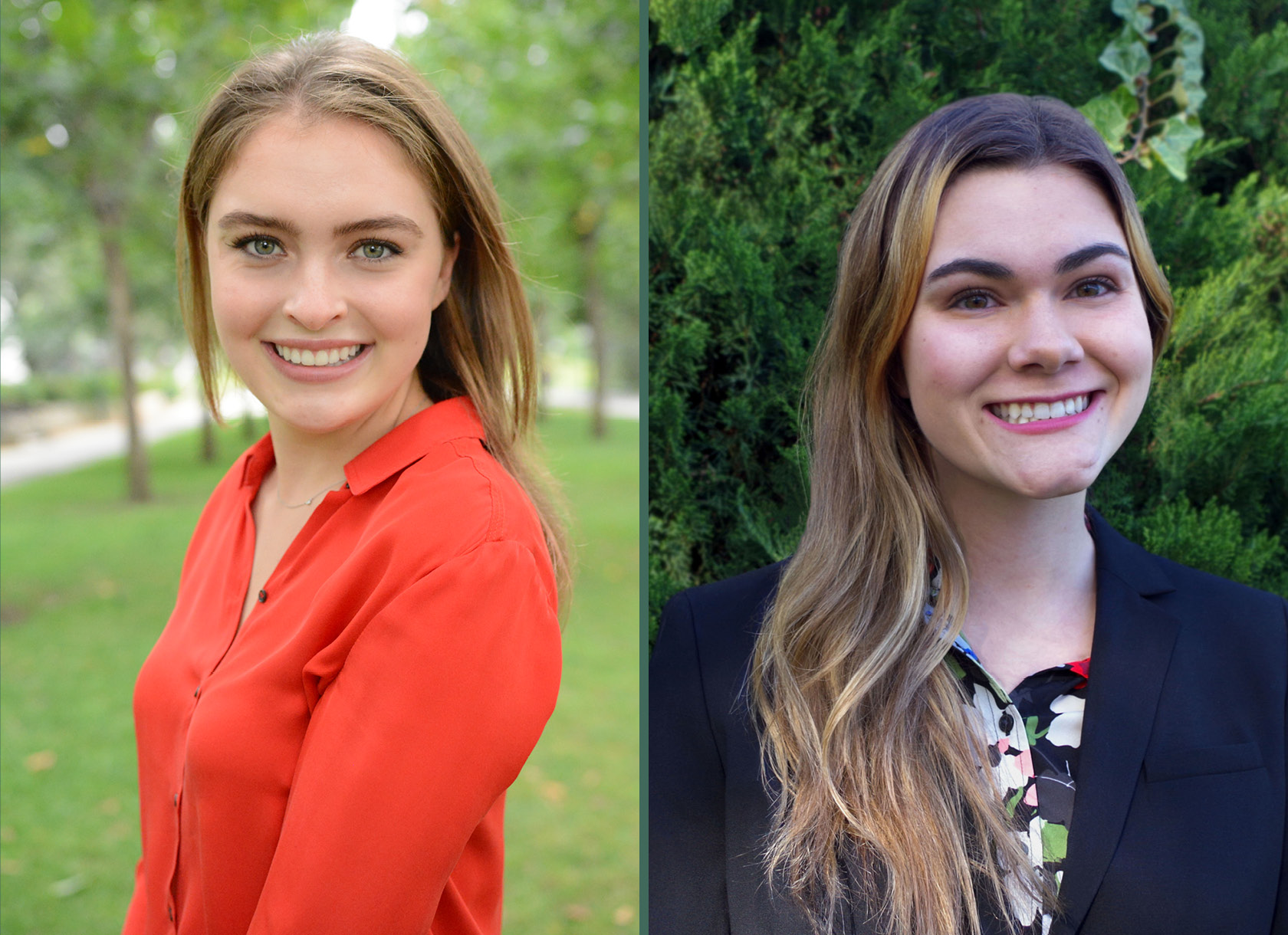
Walking home from her class, “Refugee and Forced Migration,” which she took entirely in Arabic at the University of Jordan in Amman last year, Julia Kelly ’21 recalls passing by a building that caught her eye. “I walked by the International Rescue Committee’s office on my way home every day,” recalls the Middle Eastern and North African studies major. “I learned that Jordan is a safe haven for refugees from all over the Middle East, and since then, refugee welfare became an even greater focus for me.”
Now home from that year abroad in Jordan, Kelly is still focused on refugee welfare, serving as a case manager intern for the International Rescue Committee (IRC)—albeit not on Khalil Dabbas Street, where she first encountered the global humanitarian nonprofit, but from her desk in Denver, where her remote internship keeps her busy as a point of first contact for newly resettled refugees. “We provide service to the needs of our clients, whatever they might be for the day,” explains Kelly. “In the United States, the bureaucracy can be difficult to navigate. I make calls to the Department of Motor Vehicles, energy and internet companies, state resource organizations, daycare centers, apartment complexes, and more. I call clients to help them with their employment search, edit resumes, and conduct practice job interviews, among other tasks.”
About 800 miles north in Boise, Idaho, Petie Schill ’22 is also serving as an IRC intern, assisting refuges with another key component of successful resettlement: learning English. “My internship this summer focuses on teaching English as a Second Language (ESL) to refugees through both and online formats,” she says. “I was drawn to this specific position because as a foreign languages major, one of my main goals is to improve communication and understanding across cultures.”
Schill’s interest in refugee communities is more homegrown. “Growing up in a refugee-rich community, I have become incredibly passionate about welcoming refugees, as well as immigrants, to the U.S. I’ve volunteered a lot with the IRC in the past, focusing on developing and implementing programs for refugee youth,” she says. Despite federal crackdowns on refugee admissions the U.S., Boise and other Idaho cities “continue longstanding refugee resettlement programs,” according to the Idaho Statesman, with Boise once again earning the certification of “Welcoming City” for refugees in 2019.
Both students see their internship with IRC as a step in a long path towards an eventual career in humanitarian aid, with leadership and advocacy being the defining features of their tenures thus far at Scripps. Kelly was first-year class president, executive vice president of the Scripps student body her sophomore year, and has volunteered with the 5C Refugee Advocacy Network; she has also worked as an Arabic tutor at Scripps, among other activities. Schill works at the Motley Coffeehouse, is captain of 5C Dance Company, and is also a member of 5C Refugee Advocacy Network. In addition, Schill was recently awarded the competitive Critical Language Scholarship, a summer study abroad language program funded by the Department of State for American college and university students to learn languages essential to America’s engagement with the world to study Swahili in Tanzania. Though the program was canceled due to COVID-19, she plans to reapply next summer.
Kelly and Schill’s internships are funded by Scripps’ Career Planning & Resources (CP&R) summer internship grants. “Without CP&R, I don’t think I would have been able to pursue this internship for financial reasons,” says Schill. “I am incredibly grateful to have received an internship grant since my position is otherwise unpaid.” Kelly adds that the career services offered by CP&R were also instrumental to garnering her IRC internship. “Ashley Valdez, who is a career counselor at CP&R, was amazing. He really helped me spruce up and organize my resume.” Schill also credits her Scripps course, Core III: Foreign Language and Culture Teaching Clinic, with providing a hands-on experience that guides her current work. “The course taught me about curriculum design and gave me the opportunity to teach a foreign language to elementary kids. It definitely sparked my interest in language teaching, and I love that I am able to implement and build upon my knowledge from this course during my internship,” she says.
“Aiding refugees doesn’t end after sending them to other countries,” adds Schill. “It’s vital that they have a support system to adapt and become independent in their new homes.”

